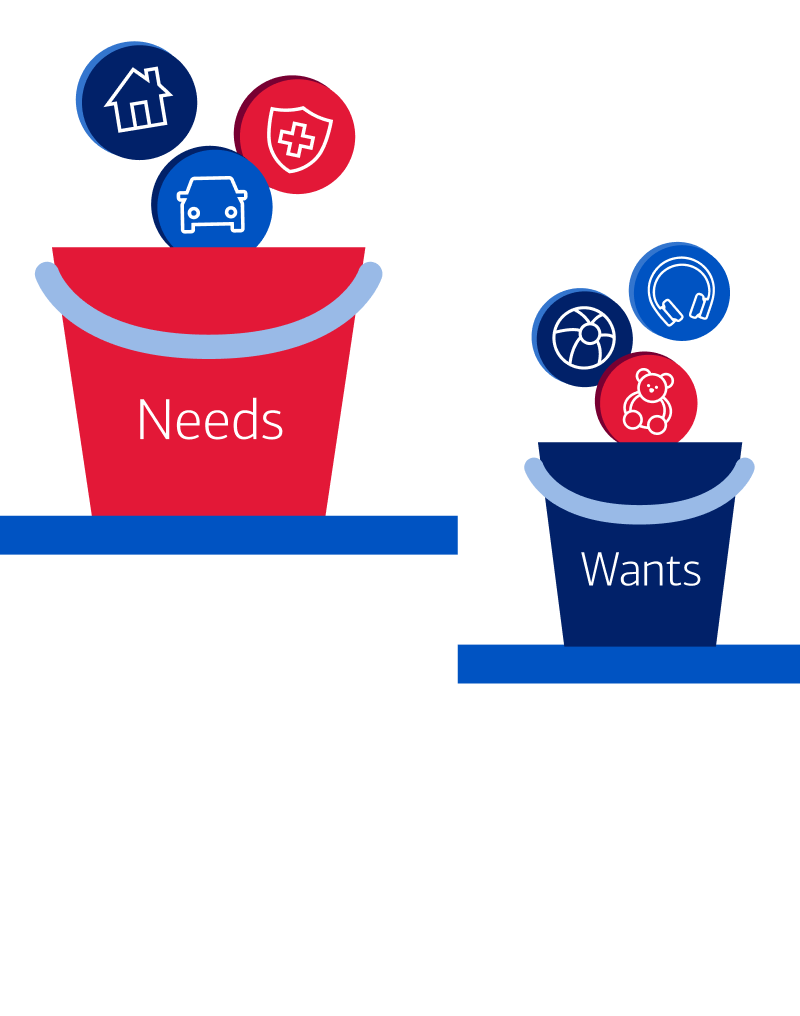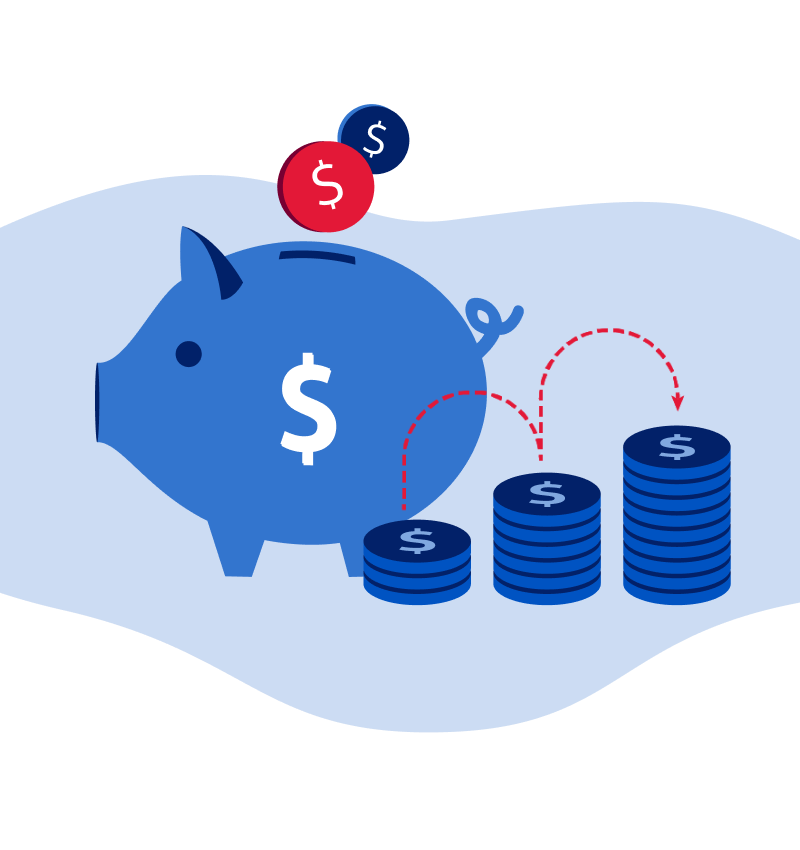Why it matters
Financial lessons in childhood can lay the foundation for money skills as an adult.


Start young
Introduce money concepts as soon as your child can do basic addition and subtraction.
Focus on basics
A good place to begin is by talking about earning

To help your child grasp this idea, you could give them a weekly allowance or pay them for specific chores or achievements.
Next, tackle spending
Once your child understands where money comes from, explain where it goes: First to things we need, then to things we want.

Then encourage saving

Ask your child what they’d buy if they had more money. Help set up a savings account or piggy bank and discuss how long they’ll need to save.

Look for teachable moments
Your child asks for a toy they’ve seen. How should you respond? That depends on their understanding of money concepts.
Questions like these can teach money concepts
-

Is it a want or a need?
Discuss pros and cons of buying it -

What’s the best price?
Show them how to shop for bargains -

How will we pay for it?
Help them come up with a plan to save for it

Remember, it’s a process
Reinforce money lessons in everyday activities. Compare prices, resist impulse purchases. Your child learns from your actions as well as your words.
You may also be interested in
This material is for informational use only and is not intended for financial or investment advice. Bank of America Corporation and/or its affiliates assume no liability for one’s reliance on the material provided. This material is not updated regularly and may not be current. Consult a financial professional when making financial decisions. ©2025 Bank of America Corporation.